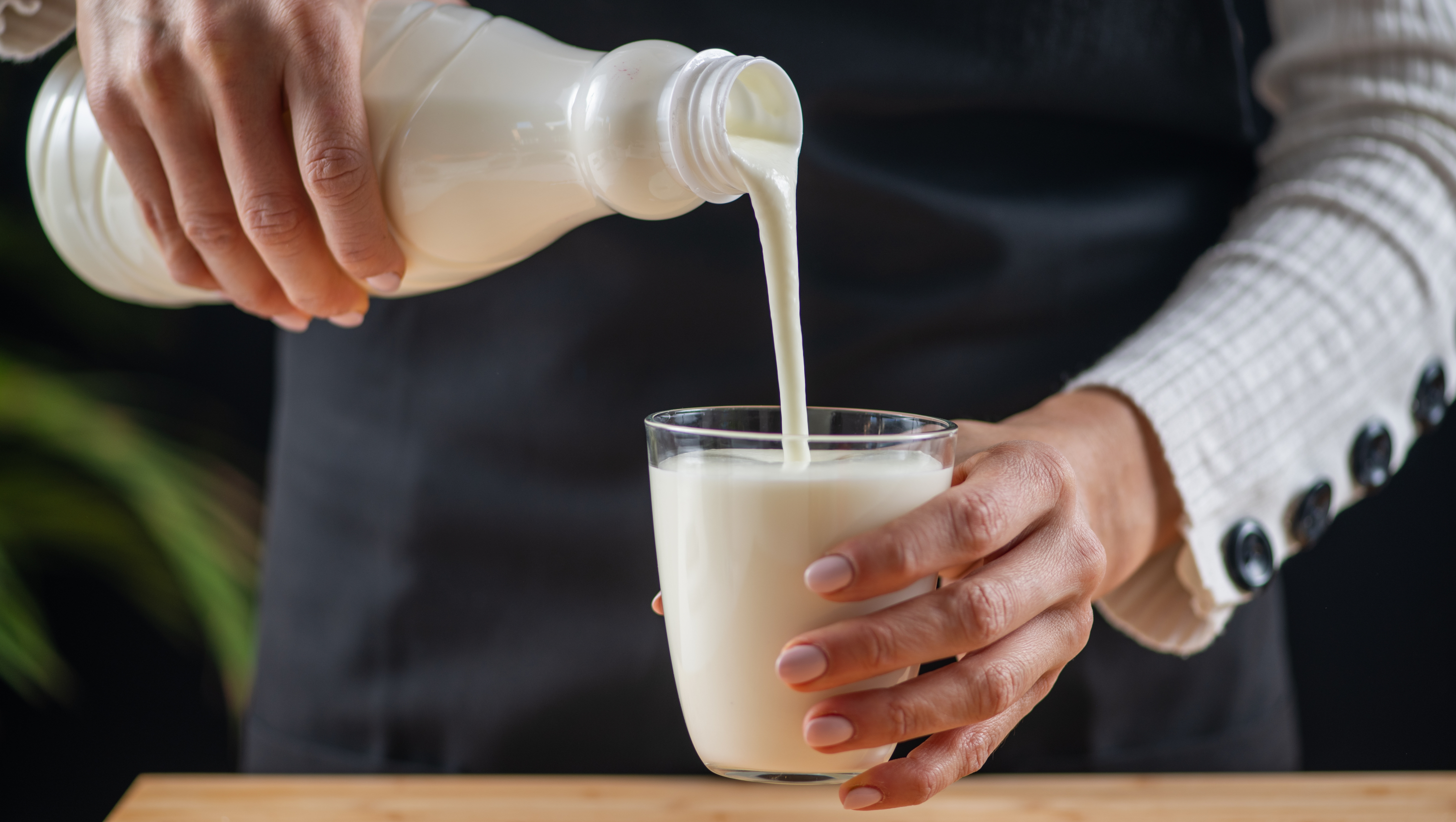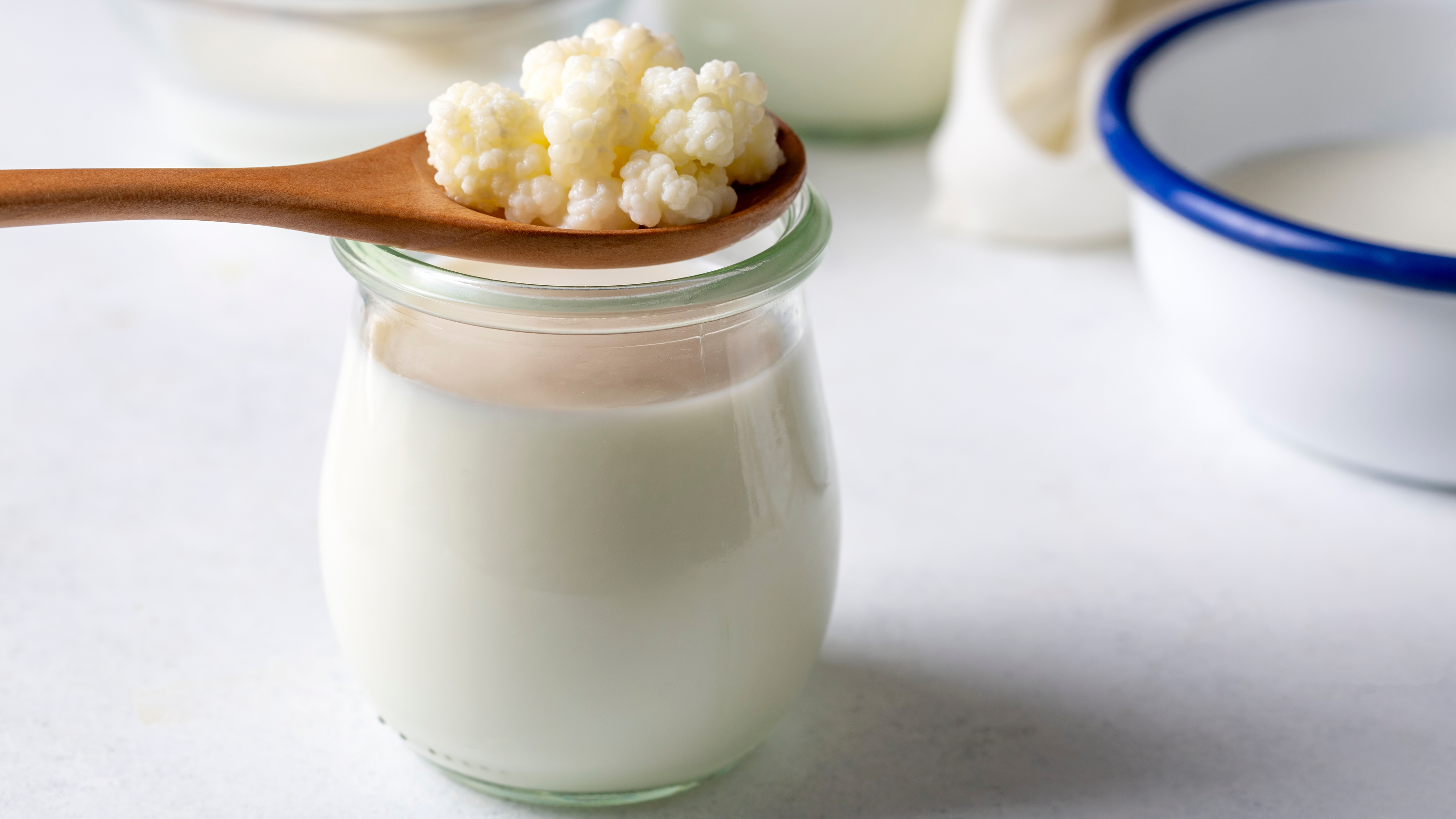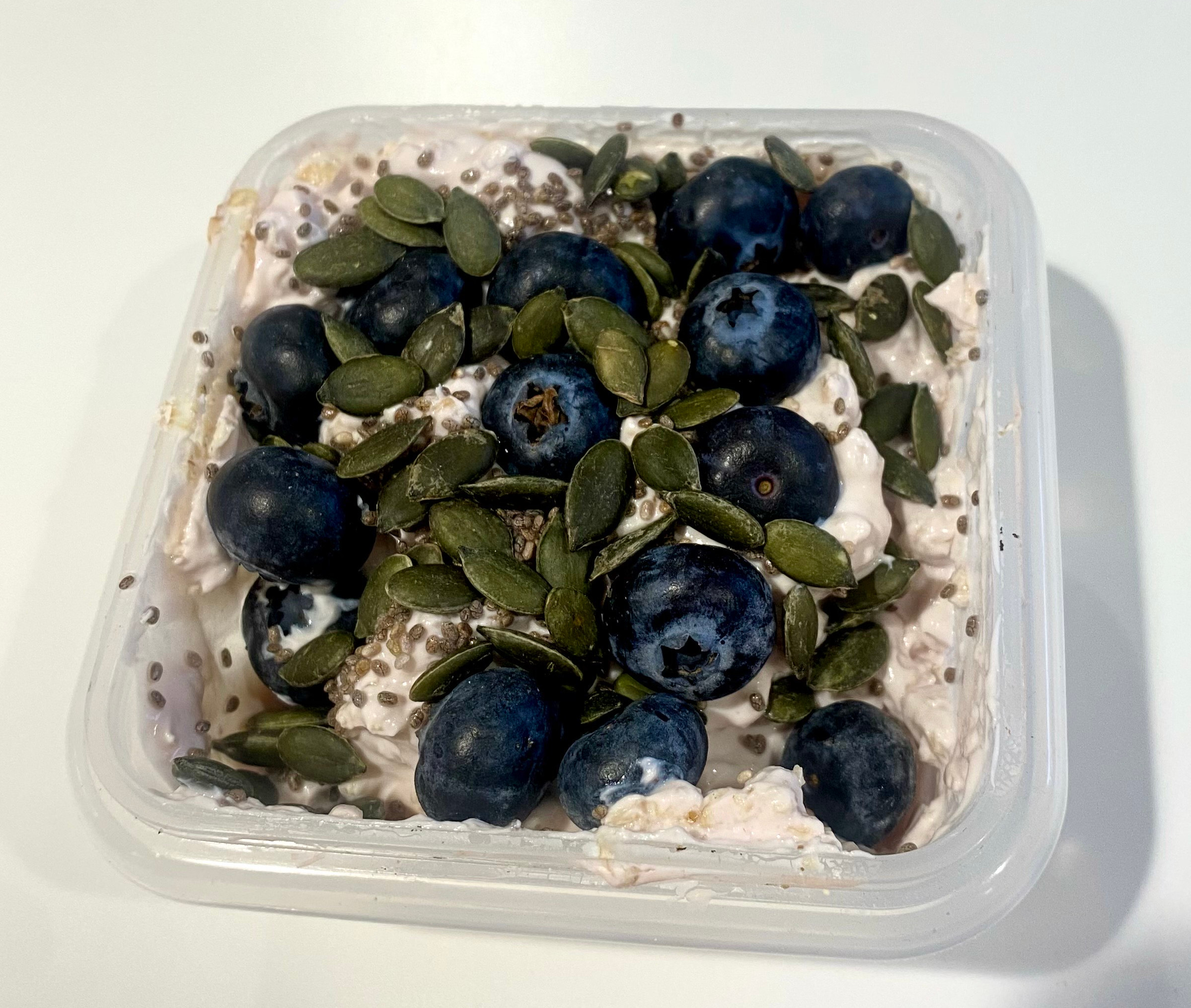I drank the viral gut health drink Kefir for a month — here’s what happened to my body
The many wonders of fermented milk

I’ve taken a real interest in gut health ever since I discovered just how much it influences the rest of the body. From your mood and energy levels to your immune system and digestion, it turns out your gut is kind of a big deal.
So lately, I’ve been diving into all things fermented (a big green flag ingredient for the gut), and one drink that keeps bubbling to the top (pun intended) is kefir. Creamy, tangy, and packed with probiotics, kefir has built a loyal fan base.
While it’s easy to make at home with just two ingredients — kefir grains and milk — getting hold of the grains can be tricky. Whereas, store-bought kefir skips the 24-hour fermentation process. Where I live In the UK, Biotiful Gut Health is the brand I consistently see stocked in my local grocery store, so I filled my fridge with a mix of its kefir products for three weeks to see if I noticed any benefits.

Jessica McAllister , MS, RDN, has been a Registered Dietitian for over 20 years, specializing in performance and functional nutrition.
What is kefir?
Kefir is a fermented milk drink with a light, yogurt-like texture. According to registered dietitian Jessica McAllister, "Although it has a unique tangy flavor and a slight bubbly feel, its effervescence is much more subtle than that of kombucha or other carbonated drinks."
Kefir is packed with beneficial bacteria that can help maintain a balanced microbiome. A healthy gut microbiome is important for digestion and overall well-being, supporting better sleep (the sleep stats on your best fitness tracker will thank you for this), a stronger immune system, and even reducing anxiety and stress.
In fact, research from Stanford School of Medicine has actually proven that a diet rich in fermented foods like kefir can increase microbiome diversity and strengthen the immune system. So the proof is in the (kefir) pudding.

In addition to its gut health benefits, kefir is also rich in nutrients. McAllister explains that kefir contains about 9 grams of protein per serving, which is more than most yogurts, along with good amounts of calcium, magnesium, potassium, and B vitamins.
She also adds, kefir is generally easier on the stomach for those with lactose intolerance and is completely gluten-free. Since kefir is dairy-based, it unfortunately isn't suitable for those following a plant-based diet. However, McAllister recommends other naturally fermented products, like sauerkraut, kimchi and miso.
I really liked the taste — and it was extremely versatile
I already knew I was a fan of kefir’s taste. During the COVID lockdown, my sister and I both moved back in with our parents, and one morning, I sneakily poured some of her cherry kefir over my granola to see what it tasted like. I quickly discovered that it was a winning breakfast combo.
Since then, I've occasionally bought a bottle from the grocery store and relived my lockdown breakfast ritual, minus the thrill of stealing it from my sister. But now, I was locking myself in for a month of kefir every day.
I find kefir to be very similar to yogurt but with a more distinctive tart flavor. While I could happily drink a standard kefir drink, it comes in a variety of flavors and can be found in both drink and yogurt forms, including protein-infused varieties. I initially thought a small splash or shot of kefir was enough, but the guidelines actually say a portion of it is around a cup, which is quite a bit more than I first realized.

Spoiler alert: I didn’t just drink kefir for the month. I started mixing it into my overnight oats, and it was a game-changer. The kefir blended smoothly and added tang and richness to my oats. I even found recipes that incorporate kefir into pancakes and chia seed puddings.
One worry I did have during the challenge was that the flavored options would risk losing the natural goodness of the kefir. According to McAllister, "Although they aren’t potentially harmful, depending on your health needs and goals, added sugars may contribute more calories than what you need in a day."
That said, the probiotics are still present in flavored kefir, so you’ll still get the gut-friendly benefits, just be mindful of the sugar content if you're drinking it regularly or watching your intake.
It didn’t do anything funky to my stomach
Adding any new ingredient to your diet can be a bit risky on the old stomach. Add the word ‘ferment’ into the mix and it’s easy to imagine some strange things happening in the stomach area. However, kefir is a probiotic-rich food that helps populate the gut with good bacteria, and should aid digestion rather than unsettle it.
As McAllister told us, it's also lower in lactose than yogurt, so it's easier on the stomach for those who don't respond well to lactose. But, if you have an allergy or intolerance to lactose, it’s important to speak to a doctor or dietician before adding a new ingredient like kefir to your diet.
While I didn’t notice any major changes in my digestion or bathroom routine (not that you’d want the details), I already eat a fairly diverse range of gut-friendly foods and get plenty of fiber, which might explain why I didn’t experience any dramatic effects.
That said, kefir could be a good addition for anyone who is currently struggling with digestive issues. Research has shown that it can relieve symptoms of constipation and even improve ‘overall bowel satisfaction,’ a term I can’t help but blame the scientists for, not me!
It can be good for your brain health in the short and long term
People often describe the gut as your second brain. This is because something called the enteric nervous system works within your gut, sending signals between your digestive system and your central nervous system.
I’m no scientist, but the way I interpret this into my own dietary choices is that I may be eating to fill my stomach up, but my brain is sitting at the table too. For this reason, I try to prioritize nutrient-rich foods into my diet that trigger feel-good chemicals in the body. Kefir falls into this category, and studies have even shown that probiotics can help reduce feelings of anxiety, stress, and even symptoms of depression.

McAllister explained the gut-brain connection, noting, "Gut bacteria produce serotonin and dopamine, which play roles in mood regulation. Approximately 95% of the body's serotonin, a neurotransmitter associated with mood stabilization, is produced in the gut."
She added that maintaining a healthy gut may play a role in managing mental health symptoms: "An imbalance in gut bacteria, known as dysbiosis, can lead to inflammation, which has been linked to depression and anxiety. Kefir’s probiotic content can help to maintain balance in the gut flora, which may help to reduce inflammation and improve the gut-brain communication pathways."
I'm not saying I felt on cloud nine every day for the past month just because I had kefir daily, but I do always feel better physically and mentally when I incorporate foods that are good for my insides, and kefir has been a key player this past month.
I drank the viral gut health drink Kefir for a month — here's what I thought
After a month of incorporating kefir into my daily routine, I've jazzed up my oats, fed my gut plenty of good bacteria, and learned plenty more about the benefits of probiotics for both the body and mind. Plus, I've rattled my flatmates by hogging all the fridge space with bottles and bottles of kefir.
I’ll definitely be keeping this ingredient in my diet. However, I probably won’t consume full portions every day, as the cost of keeping the fridge stocked with it does add up. Additionally, there are other fermented ingredients I can add to my diet on different days, which can also help to diversify my gut microbiome.
During this experience, I came across a lot of positive research on kefir's benefits for the body, and I imagine more studies will emerge as gut health continues to trend. Now, I’m on the lookout for the next gut-friendly food to incorporate into my diet. Any ideas?
More from Tom's Guide
Sign up to get the BEST of Tom's Guide direct to your inbox.
Get instant access to breaking news, the hottest reviews, great deals and helpful tips.

Jessica has been a fitness writer at Tom’s Guide since 2023, bringing three years of experience writing about health, fitness, and the great outdoors. Her passion for exercise began during her childhood, where she spent weekends hiking and competing in local athletics club events. After earning a master’s degree in journalism from Cardiff University, Jessica found the perfect way to combine her love of storytelling and fitness into a career.
Jessica is passionate about testing fitness gear and tech, using her reviews to help readers make informed buying decisions. She ran her first marathon in April 2024, finishing it in 3 hours and 48 minutes. Through her training, she’s developed a deep understanding of what it takes to grow as a runner, from effective workouts and recovery techniques to selecting the right gear for every challenge.
When she’s not at her desk, Jessica enjoys spending time in the kitchen crafting new recipes, braving cold water swims and hiking.
You must confirm your public display name before commenting
Please logout and then login again, you will then be prompted to enter your display name.
